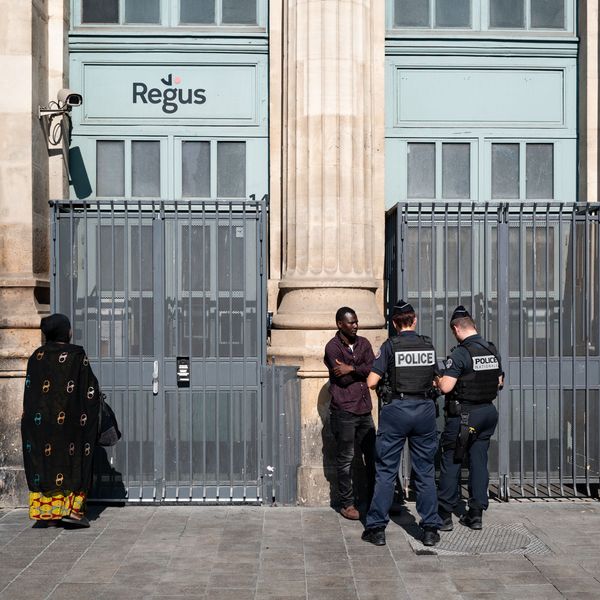European and Turkish leaders are moving ahead with a plan to cope with the refugee crisis that critics have characterized as "obscene," in which European countries will pay Turkey billions to take asylum seekers off their hands.
On Tuesday the prime minister of Turkey, Ahmet Davutoglu, president of the European Council, Donald Tusk, and president of the European Commission, Jean Claude Juncker, jointly shared an outline of the agreement ahead of the European Council meeting on March 17 and 18.
The outline includes a proposal "that for every Syrian refugee returned to Turkey from Greece, a Syrian will be settled within the EU," an arrangement the human rights group Amnesty International characterized as "wrought with moral and legal flaws."
"EU and Turkish leaders have today sunk to a new low, effectively horse trading away the rights and dignity of some of the world's most vulnerable people. The idea of bartering refugees for refugees is not only dangerously dehumanizing, but also offers no sustainable long term solution to the ongoing humanitarian crisis," said Iverna McGowan, head of Amnesty International's European Institutions Office, in a press statement.
"A fundamental contradiction lies at the heart of the EU-Turkey deal taking shape," argued Bill Frelick, refugee rights director at Human Rights Watch. "The parties failed to say how individual needs for international protection would be fairly assessed during the rapid-fire mass expulsions they agreed would take place."
United Nations high commissioner for refugees William Spindler joined the widespread critique on Tuesday, noting that he is "concerned about any arrangement that involves the blanket return of all individuals from one country to another without sufficiently spelt out refugee protection safeguards in keeping with international obligations."
Frelick continued, "It is knowingly short-sighted for EU leaders to close their borders without considering the impact on Turkey's borders with Syria." He observed that Turkey's border remains closed to all Syrian refugees fleeing the violence in Aleppo, thus exposing them to horrible danger.
Amnesty International's McGowan argued that life within Turkey's borders is also not a safe one for refugees, noting the severe lack of adequate housing and education options for children growing up in refugee camps. "By no stretch of imagination can Turkey be considered a 'safe third country' that the EU can cozily outsource its obligations to," McGowan said.
Many critics have also drawn attention to Turkey's recent crackdown on civil liberties, as the EU-Turkey summit came mere days after the government took over the largest independent newspaper in the country.
The proposed agreement also "rests on an extremely weak foundation: by mid-January, fewer than 800 refugees had been resettled in Europe under a 2015 commitment by EU governments to resettle 22,500 refugees from various regions by the end of 2017," Human Rights Watch pointed out.
In addition, European Council president Tusk announced that as a part of the agreement the Western Balkans migration route to western Europe would be closed. Thousands of refugees are currently stuck in the Greek border town of Idomeni, as Macedonian border guards have refused to allow them entry. NGOs working in the area told The Independent that they "fear the situation might become violent if migrants at the sprawling camp were told the border was closed and were ordered back to Turkey."
With days to go before the agreement is ratified, Slovenia announced that it would close its borders to anyone without a EU visa on Tuesday at midnight, "effectively closing the main Balkan migration route," the Associated Press reported. Serbia has announced that it will follow suit.


